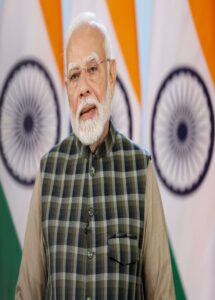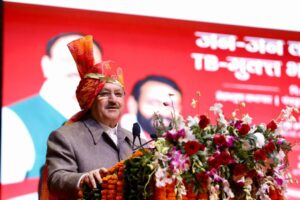India’s Commitment to Peaceful Boundary Settlement with China, Says S. Jaishankar

Am 13. Mai 2023 nahm Außenminister Alexander Schallenberg beim EU-Indopazifik Forum in Stockholm teil. Im Bild mit seinem indischen Amtskollegen Subrahmanyam Jaishankar nach der Unterzeichnung des Österreichisch-Indischen Migrations- und Mobilitätsabkommen.
New Delhi, December 3: External Affairs Minister S. Jaishankar reaffirmed India’s commitment to engaging with China through bilateral talks to establish a fair, reasonable, and mutually acceptable framework for resolving the boundary issue. Speaking in the Lok Sabha, Jaishankar said that India remains dedicated to engaging China diplomatically while keeping national security interests at the forefront.
The Minister pointed out that bilateral relations between the two countries have remained “abnormal” since 2020 when peace and tranquility along the Line of Actual Control (LAC) were disturbed due to Chinese actions. Jaishankar acknowledged that while the relationship had progressed in various domains, recent events had impacted the ties negatively.
“Our relationship had progressed in many domains, but was obviously negatively affected by recent events. We are clear that the maintenance of peace and tranquility in border areas is a pre-requisite for the development of our ties,” Jaishankar stated. He emphasized that the immediate priority was disengagement from friction points to prevent further clashes, which has now been fully achieved.
Focus on De-escalation and Border Management
Jaishankar informed the Lok Sabha that India will now shift its focus to de-escalation and effective management of the border areas. He explained that the completion of disengagement allows for a more calibrated approach to other aspects of the bilateral relationship.
The External Affairs Minister recalled the 2020 face-offs between Indian and Chinese forces in eastern Ladakh, noting that the amassing of troops by China led to violent clashes, including the Galwan Valley incident, which marked the first fatalities between the two nations in 45 years. Jaishankar credited India’s armed forces for their rapid and effective counter-deployment despite logistical challenges and the ongoing Covid-19 pandemic.
Long History of Engagement and Disruptions
Jaishankar also highlighted the long history of efforts to ensure peace along the border, which dates back to 1988 when both countries agreed to resolve the boundary issue through peaceful consultations. Over the years, several agreements were reached, including the 1993 Agreement on the maintenance of peace and tranquility along the LAC, confidence-building measures in 1996, and the 2003 Declaration on Principles for Relations and Comprehensive Cooperation.
The Minister underscored that despite the unprecedented disruptions in 2020, India remains committed to the principles of respecting the LAC, not attempting to alter the status quo unilaterally, and fully abiding by past agreements.
Diplomatic Efforts and Future Prospects
Jaishankar also shared that he recently met Chinese Foreign Minister Wang Yi, where both sides agreed to convene Special Representatives and Foreign Secretary-level discussions soon. Furthermore, Defence Minister Rajnath Singh met his Chinese counterpart Admiral Dong Jun in Laos last month, where they discussed moving from disengagement to de-escalation to build greater trust and confidence between the two nations.
The bilateral meeting, held on the sidelines of the ASEAN Defence Ministers Meeting Plus, was the first following recent disengagement agreements and a summit between Prime Minister Narendra Modi and Chinese President Xi Jinping during the BRICS summit.
India remains firm in its commitment to peace and security along the LAC, emphasizing diplomatic engagement as the way forward to restore tranquility and address future challenges.





